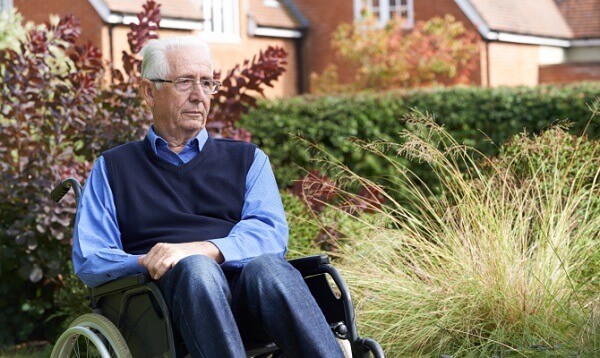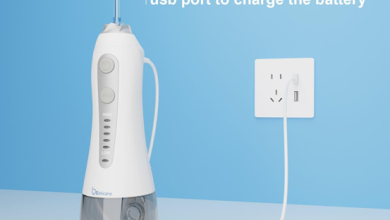Taking Care: Identifying Nursing Home Abuse And How To Report It

Nursing home abuse is a topic that is often taboo, and victims may feel alone in their experience. However, there are a few things that you can do to help identify and report nursing home abuse. Here are a few tips to get started:
Knowing And Understanding The Signs
One of the best ways to identify and prevent nursing home abuse is to be familiar with the signs of abuse. This includes knowing what sorts of behavior makes someone feel uncomfortable or threatened in a nursing home, and being aware of what is typically done to people who are disabled or elderly.
If you feel that you are a victim of nursing home abuse, it is important that you speak to someone about it. There are many resources available, such as hotlines and helplines operated by advocacy groups. You can also contact your personal injury lawyer in order to pursue legal action if appropriate.
Physical Abuse
Elder physical abuse can take many different forms, but some of the most common include hitting, shoving, choking, and beating. Elder physical abuse can be a form of emotional or physical abuse as well as a form of neglect. The National Center on Elder Abuse has a list of signs that someone may be experiencing elder physical abuse.
Sexual Abuse
Elder sexual abuse is a term used to describe any type of sexual activity between an older person and someone else. It can be physical or psychological in nature, and can involve anyone from family members to caretakers.
This can involve any kind of body contact, including fondling, kissing, or penetration. Rape is the most severe form of this type of abuse and often involves violence or threats of violence. Psychological elder sexual abuse can take many forms, including forcing someone to perform sex acts against their will, making sexually suggestive remarks or gestures, and isolating a victim from friends and family.
Any person who engages in elder sexual abuse is committing a crime that can have serious consequences for both the abuser and the victim. Anyone who suspects that an elderly relative has been abused should contact law enforcement immediately.
Emotional Abuse
There are many types of emotional elder abuse, but some of the most common include verbal and emotional abuse, financial exploitation, and neglect. Verbal abuse can take many forms, including name-calling, swearing at or hitting an elder, or calling them stupid. Emotional abuse can involve insults and put-downs that make an elder feel inferior or ashamed. Financial exploitation can occur when an abuser takes advantage of an elder’s lack of understanding about finances to take advantage of their money or assets. Neglect can refer to not providing adequate nutrition or hydration, leaving an elder alone in a dangerous environment, or not providing necessary medical care.
Any type of emotional abuse is damaging to the victim’s mental and physical health. It can cause stress levels to spike, worsen depression and anxiety disorders, increase the risk for falls and other injuries, decrease social activity and communication skills, and lead to feelings of isolation and loneliness. Elder abuse is a serious crime that needs to be taken seriously by both the abuser and law enforcement officials. If you are concerned about your loved one’s safety or well-being due to emotional abuse, please talk to a professional about what steps you can take to help protect them.
Medical Neglect
Medical neglect refers to any act or omission by a healthcare professional that results in the inadequate or preventable care of an elderly person. Types of medical neglect can vary, but some common examples include failure to initiate or provide proper care for a patient’s wounds, ignoring signs of dehydration or malnutrition, and failing to prescribe medications when they are needed.
Medical neglect can have serious consequences for elderly patients. In some cases, it may lead to physical injuries or even death. Additionally, medical neglect can cause emotional distress and even financial hardship for elderly patient and their loved ones. To ensure that elderly patients receive the care they need and deserve, it is important that healthcare professionals take appropriate measures to prevent medical neglect from happening in the first place.
Reporting Abuse In A Nursing Home
If you suspect that there is nursing home abuse happening in your facility, the first thing that you should do is speak to a trusted friend or family member about what you have seen or experienced. If they confirm that there has been abuse, it is important to take action right away by contacting your facility’s administrator or law enforcement officials.
Nursing home administrators have a responsibility to investigate and respond to reports of abuse. If you are not satisfied with the response that you receive from your facility, it is always possible to file a lawsuit against the institution.
Nursing home abuse can be a serious issue that can lead to physical, emotional, and financial damage for both the elderly patient and their loved ones. It is important to take appropriate steps to prevent abuse from happening in the first place, and if you do experience abuse, it is important to speak with a trusted friend or family member about what has happened. In the event that you are not satisfied with the response that you receive from your facility, it is always possible to file a lawsuit against the institution.















